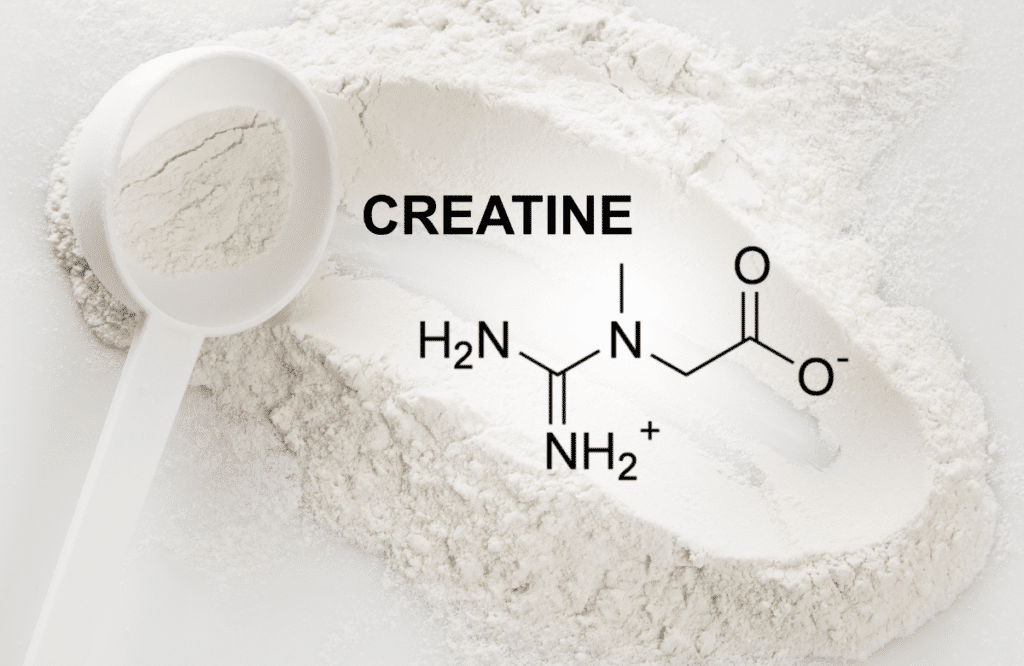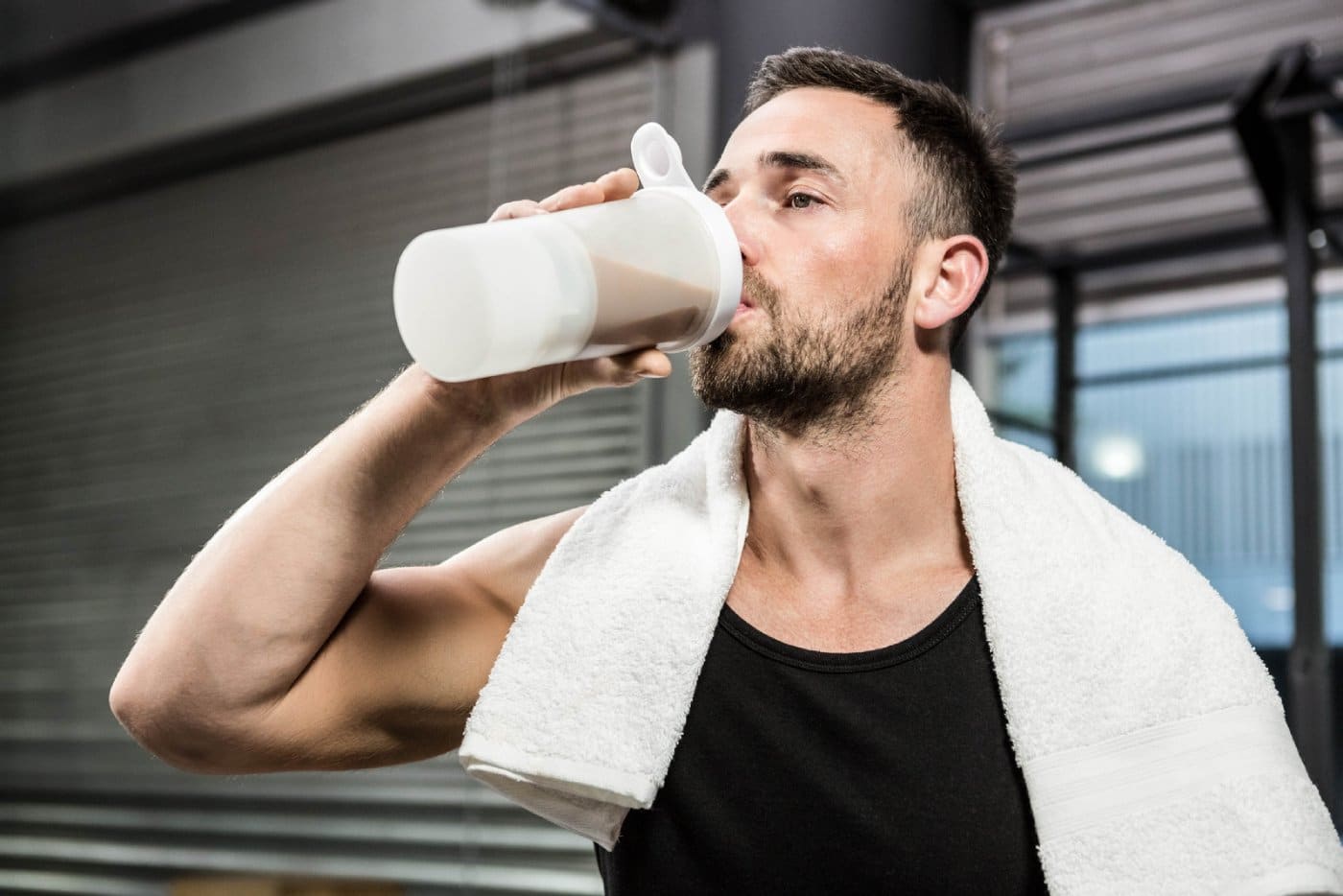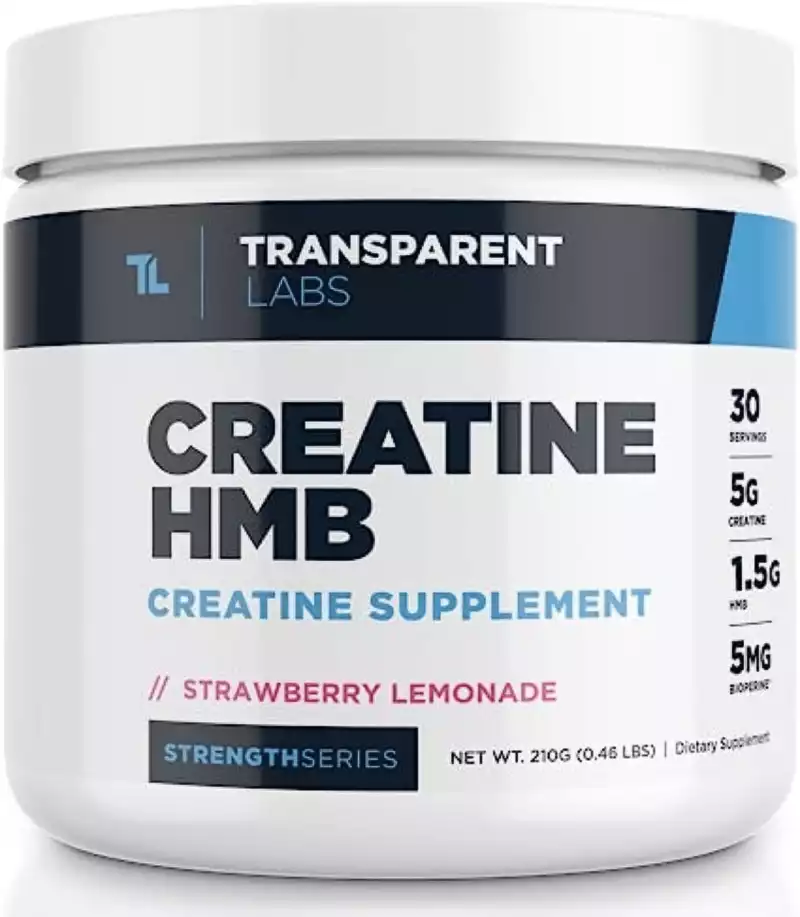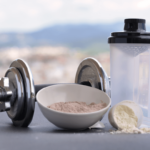Creatine monohydrate is all the rage and with it making its run in the fitness market, there’s bound to be questions. One of the biggest wonders when it comes to creatine supplements is what they will do to your body.
From the cognitive benefits, creatine before and after changes, the negative impact of creatine, and how a consistent creatine intake can raise your athletic performance.
These popular supplements paired with heavy resistance training can obviously be a great option, but let’s dive in deeper and break down what creatine can really do to your body.
What Is Creatine?
Creatine monohydrate is a natural substance found in muscle cells. It helps your muscles produce energy, and helps improve strength and intensity during heavy lifting or high-intensity exercises.
A creatine study showed that adding creatine to a strength training program increased strength by 8%, weightlifting performance by 14%, and bench press one-rep max by up to 43%, compared with training alone.
Based on our testing, this is the best creatine for most people. It has the perfect dosage of creatine monohydrate per serving, which has been proven to increase muscle mass.
- Promote strength and muscle gains
- Tested for purity and safety
- Creatine has no known side effects
In well-trained and professional strength athletes, 28 days of supplementing creatine increased performance by 15% and bench press performance by 6%.

Creatine Benefits and Side Effects:
Though creatine is one of the most researched supplements on the market, there are still many questions about how it can affect your body in both a positive and negative way. Here are a few of them:
Initial Weight Gain
When first taking creatine, there’s a decent chance you’ll gain at least two to five pounds. It’s recommended to do low-dose creatine supplementation to lower the chance of an increase in body weight, however, with creatine you’re building mass over time and improving your muscle mass and body composition, so you’re not necessarily gaining body fat.
One of the most common reasons for initial weight gain that is associated with creatine supplementation is increased water weight due to water retention. Creatine helps increase muscle mass by drawing extra water into the muscle cells which means it’s causing you to retain fluid.
Creatine supplement is very effective at helping increase strength and athletic performance. This means it can work out for longer and in return help you build more muscle and burn a higher fat percentage. Because of that, and muscles being more dense than fat, adding a small amount of muscle while losing fat can cause the scale to tick upward. So even though you’re technically gaining weight, you’re getting more lean body mass.
Gastrointestinal Issues
Like protein supplements a huge creatine side effect is stomach discomfort. Paired with a proper diet, stomach issues can be negated. Though depending on how many grams of creatine powder and the other dietary supplements you are taking, the positive effects of creatine might be harder to see. Luckily there are all kinds of creatine variations and different ways to slowly introduce it into life.
Studies suggest that you divide 20-30 grams per day of creatine 3-4 times over 6 to 7 days and steadily increase the amount until the desired final amount will help with stomach discomfort. This kind of consumption for resistance-trained athletes is proven to help negate stomach issues and increase muscle creatine levels and lean body mass.

Strength, Muscle Growth, And Training Performance
Creatine gives you a boost in strength and muscle enhancement by increasing the amount of water in your muscles, which is basically creating a better environment for muscle growth. This means it helps increase nitrogen balance, changing the expression of genes that influence hypertrophy and producing anti-catabolic (muscle-protecting) effects. It also helps you by allowing you to lift heavier for more reps.
If you use this additional strength to continue applying progressive overload techniques and getting stronger than you were without creatine it allows you to place your muscles under a greater stimulus for growth and increase things like your bench press strength.
One study showed that regular creatine supplementation can allow you to lift 20% more across all rep ranges when compared to a placebo which only saw an increase of 12%. This means by taking enough creatine per day healthy individuals can get an improved strength gain of 8%.
This also comes with many athletic performance benefits when taking a creatine supplement. Depending on how many grams per day you’re taking and the time frame, a week of supplementation increases blood flow and keeps your muscles from fatiguing too fast, and up your performance.
Quicker Recovery
On top of an overall increase in body strength, one of the main effects of creatine is a faster recovery, which a number of different studies have explored, especially to help experience less soreness following prior eccentric loading.
Although not every study shows such a positive effect, none show a negative one, so creatine supplementation may be a worthwhile consideration as a recovery agent.

Not Ideal For Everyone
If you are taking medications that affect your kidney or have kidney disease, liver disease, or higher than normal blood pressure then it’s often recommended to not take creatine. However, it’s always a safe option to ask a medical professional before taking any workout supplementation, especially when taking larger amounts of creatine.
Cognitive And Neuroprotective Benefits
Like your muscles, your brain stores phosphocreatine and requires plenty of ATP (the source of energy for use and storage at the cellular level). Supplementing with creatine may improve the following conditions like Alzheimer, Parkinson’s, epilepsy, brain or spinal cord injuries, memory, and brain function, and more.
Based on our testing, this is the best creatine for most people. It has the perfect dosage of creatine monohydrate per serving, which has been proven to increase muscle mass.
- Promote strength and muscle gains
- Tested for purity and safety
- Creatine has no known side effects
A 6-month study in children with traumatic brain injury observed that there was a 70% reduction in fatigue and a 50% reduction in dizziness with an increase in creatine and research also suggests that creatine can aid older adults and those at risk of neurological diseases.
Creatine Before and After: FAQ
Is Creatine Also A Pre-Workout?
Pre-workout ingredients deplete quickly, especially the stimulant components such as caffeine. They’re designed to deliver benefits in the short term, which is why (to maximize the impact of the ingredients) pre-workout is designed to be taken just before your gym session. Whereas creatine operates differently, as it only works after the creatine stores have been built up over time. It also differs from pre-workout because there’s no hard and fast rule as to when you should take creatine.
How Long Does Creatine Take To Show Results?
Creatine results typically kick in at around roughly 2-4 weeks (depending on the dose and your personal response). They also begin to wear off after around six weeks. The difference here is that you’re maintaining levels at a healthy, optimal state, rather than addressing a deficiency.
Is Creatine Better Before Or After A Workout?
Consuming creatine immediately post-workout is superior to pre-workout and is great for maximizing that creatine energy rush while creatine post-workout can aid muscle recovery. Though there are some experts who recommend splitting your daily creatine dose in two, you’re receiving the best that creatine has to offer by improving your athletic performance and aiding your recovery.
What Happens When You Stop Taking Creatine?
When your usual creatine dosage is stopped, you lose that extra energy, which means you won’t be able to exercise like when you took creatine. This means your performance will decrease and you will most likely work out less. So really there’s no serious lack of health benefits or severe withdrawal symptoms, but your exercise performance will decrease.













